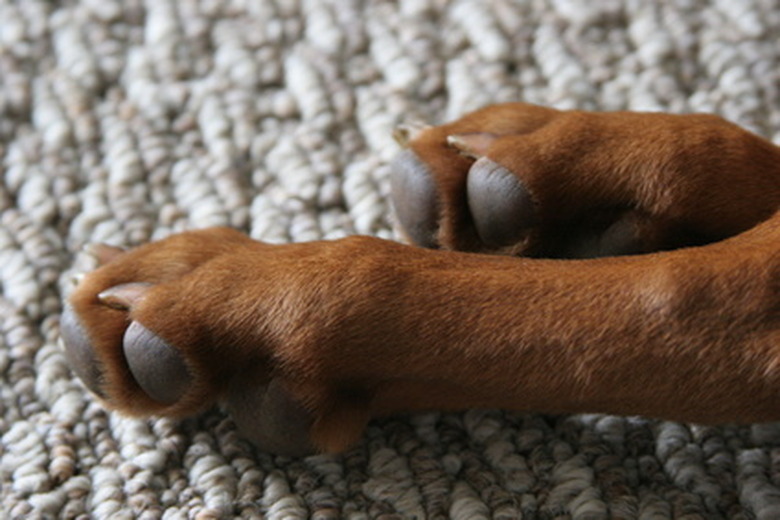Home Remedies To Toughen The Pads Of A Dog
Cracked and sore pads can be painful for a dog and interfere with its ability to walk, play and run. Dogs do not have any added protection for their feet against glass, chemicals or hot pavement like humans do. The pads of a dog's foot are made up of tough skin, fat and collagen. Checking your dog's paws regularly and applying home remedies to toughen the pads can help prevent injuries and infections.
Conditioning
Conditioning
One of the easiest ways to toughen up your dog's feet is through conditioning. If your dog is a house dog and sits around a lot, get its feet accustomed to tougher surfaces. Walk or run the dog on rough surfaces like concrete or asphalt daily until the pads start to toughen up. If the dog has an outdoor kennel, covering the ground of the kennel in pea gravel will also help toughen the pads.
Tea Soak
Tea Soak
Although there are a lot of commercial products you can buy to toughen your dog's pads, they can sometimes contain ingredients that are harmful to your dog if swallowed. Tannic acid in black tea can help toughen up your dog's pads naturally. Seep four tea bags in a cup of warm water and use it to soak your dog's foot. You can also apply a wet tea bag to the dog's paw daily.
Cleaning and Grooming
Cleaning and Grooming
Trim the dog's nails and the fur between its pads once a month to give the dog better traction on surfaces when walking and running. This will expose the dog's paws to more direct contact and will help toughen the pads. Wash the dog's paws regularly to prevent bacteria from growing on the pads. Bacteria can damage and eat away at the skin. Dust the pads with an anti-fungal powder.
Diet and Supplements
Diet and Supplements
Zinc can help toughen your dog's pads and heal them quickly if the pad becomes injured. Zinc is an essential mineral in the production of collagen that can help heal skin and strengthen the pad's connective tissues. Zinc deficiency is a common problem in dogs and can be remedied with dog food with zinc additives or zinc supplements. Omega-3 supplements can also help heal your dog's skin and paws by helping the skin produce natural oils that will prevent the pad's from cracking and drying out.
Always check with your veterinarian before changing your pet's diet, medication, or physical activity routines. This information is not a substitute for a vet's opinion.
